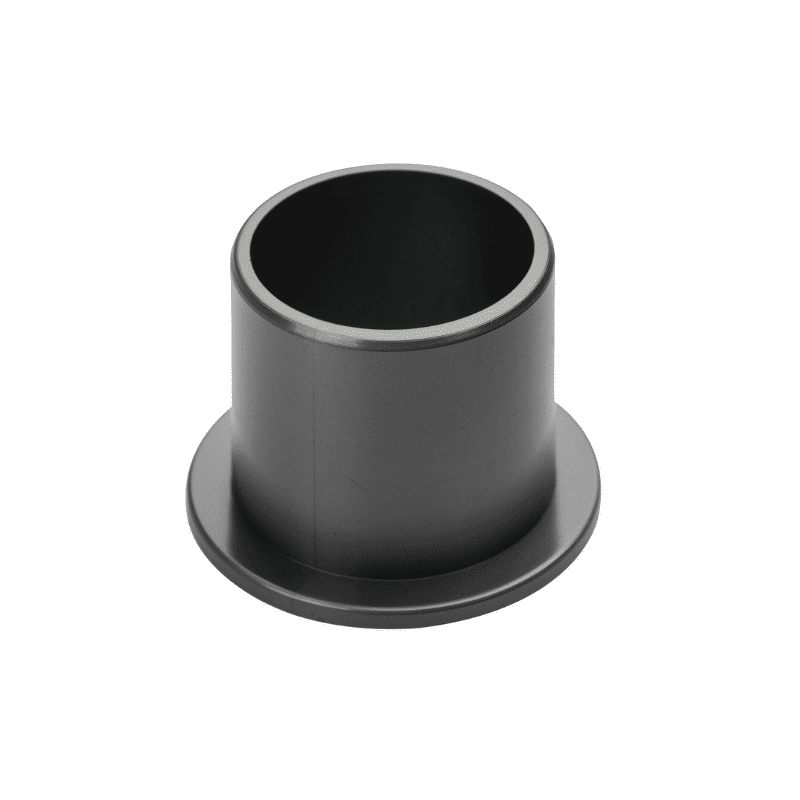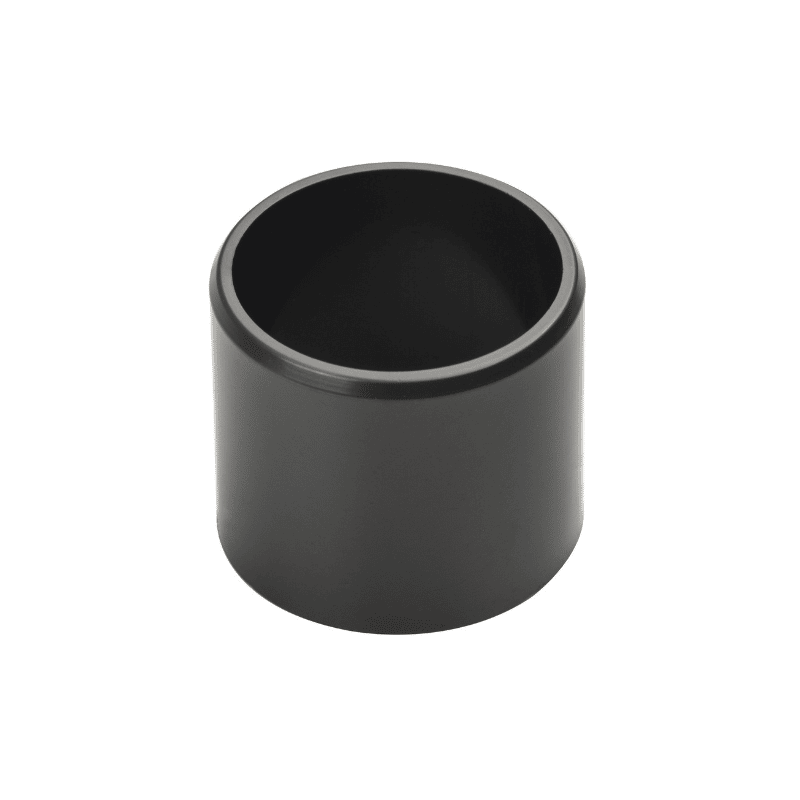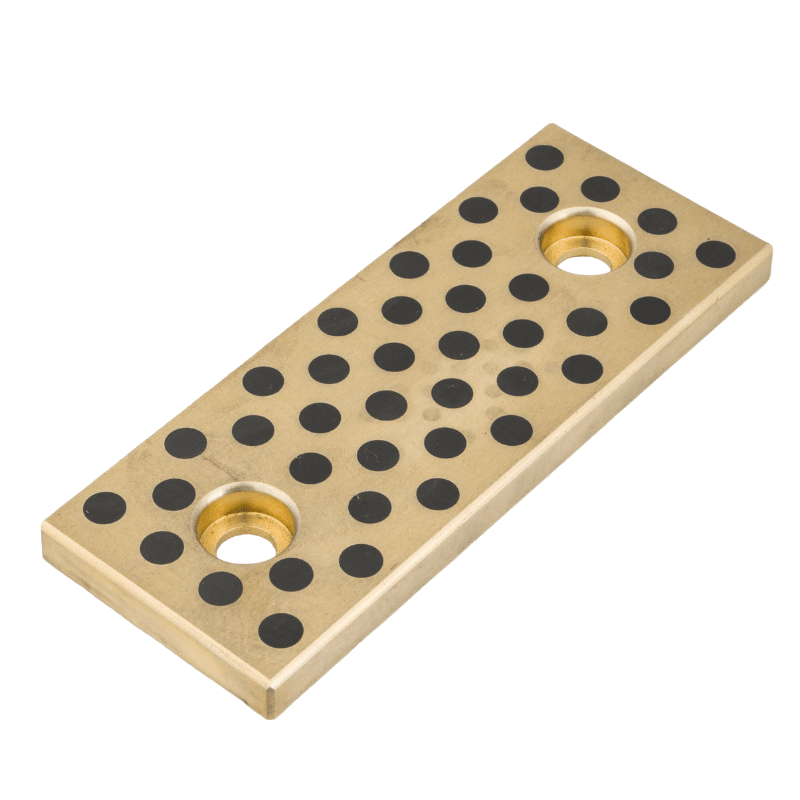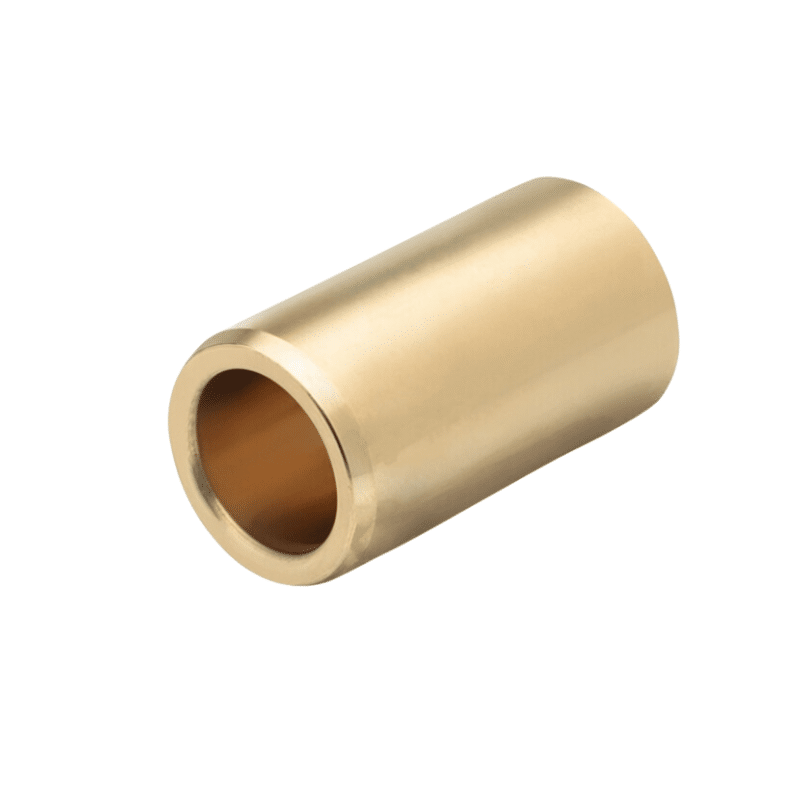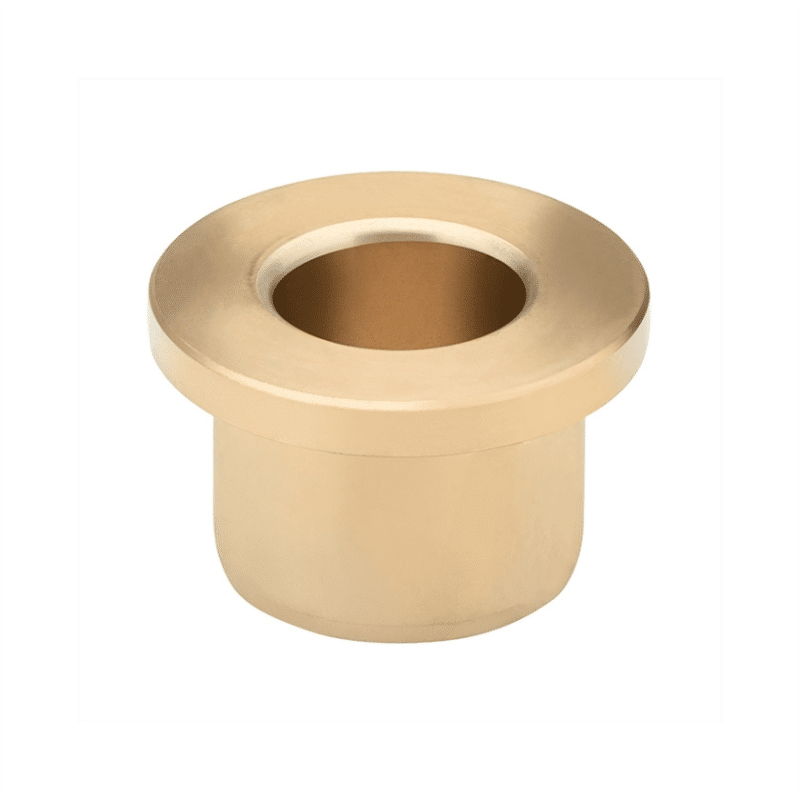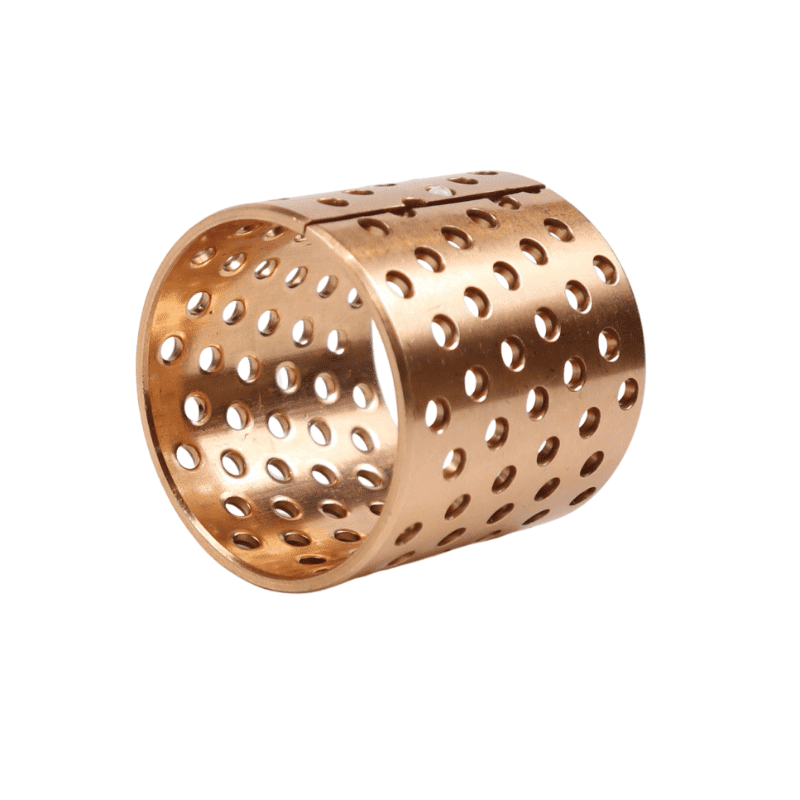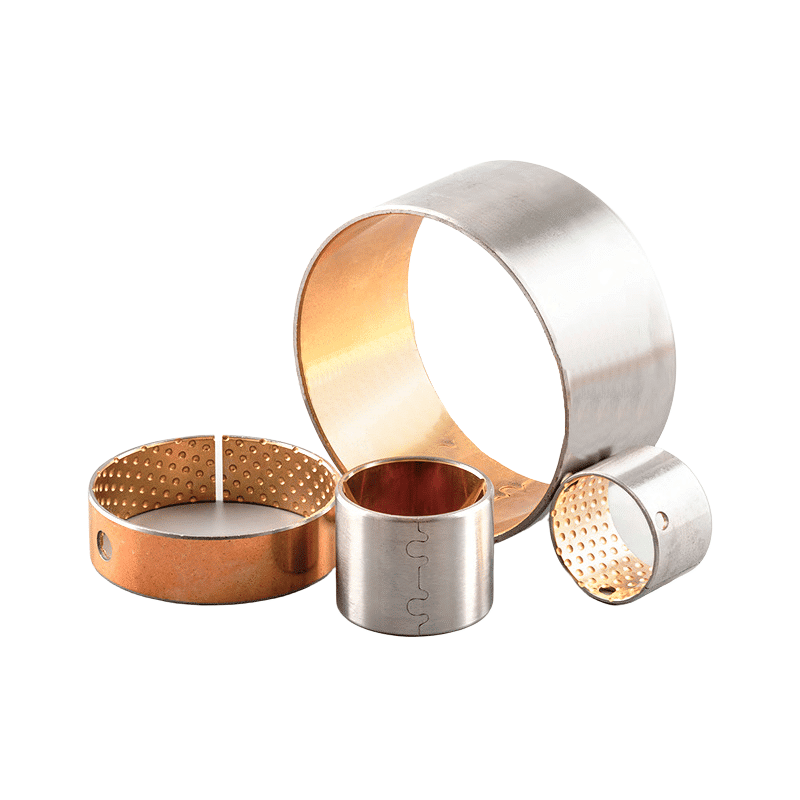Plastic Bushing
Plastic Bushing
Say goodbye to the hassle of frequent lubrication maintenance. Our self-lubricating technology ensures smooth operation and reduces wear and tear, extending the lifespan of your equipment. Experience uninterrupted productivity and cost savings as you bid farewell to the need for messy lubricants and time-consuming upkeep.
Manufacturing on Demand, alternative solutions
Plastic Bushing
Shop a large range of copper bushing at bronzelube.com. The self-lubricating plastic plain bearing has good shock resistance, vibration absorption, and wear resistance. Support all your metal copper bushing and maintenance repair needs …
When it comes to choosing the right type of bearing for a particular application, there are a lot of factors to consider. Traditionally, plain bearings have been the go-to option for many engineers and designers, but with the rise of bronzelube Self-lubricating plastic bushings, there are now more options to choose from than ever before. In this article, we will explore the benefits of bronzelube plastic bushings over traditional plain bearings, and why they should be considered for your next project.
What are Plain Bearings?
Plain bearings are one of the most commonly used types of bearings. They consist of a metal sleeve and a corresponding journal or shaft that rotates within it. The metal sleeve provides a low-friction surface for the journal to rotate against, and in many cases, is coated with a layer of lubricant to further reduce friction.
While plain bearings have been used for many years, they do have their drawbacks. One of the biggest is that they require regular maintenance and lubrication to prevent wear and tear. They can also be prone to failure if the lubrication system fails or is not properly maintained.
What are Self-lubricating plastic Bushings?
Self-lubricating plastic bushings are a type of self-lubricating bearing that are made entirely of plastic. manufacturer of plastic bearings and other motion control components.
Unlike traditional plain bearings, bushings are self-lubricating, which means they do not require any external lubrication or maintenance. They are also resistant to a wide range of chemicals, temperatures, and other environmental factors, making them ideal for use in a variety of applications.
Benefits of Self-lubricating Plastic Bushings
- Self-lubricating: plastic bushings do not require any external lubrication, which reduces maintenance and downtime.
- Corrosion-resistant: Self-lubricating plastic bushings are resistant to a wide range of chemicals, including acids, bases, and oils.
- High-temperature resistance: Self-lubricating plastic bushings can operate at temperatures up to 572°F, making them ideal for use in high-temperature applications.
- Low coefficient of friction: Self-lubricating plastic bushings have a low coefficient of friction, which reduces wear and tear and extends the life of the bearing.
- Lightweight: Self-lubricating plastic bushings are significantly lighter than traditional plain bearings, which can help reduce overall system weight and improve efficiency.
Applications of Self-lubricating Plastic Bushings
Self-lubricating plastic bushings are ideal for a wide range of applications, including those in the automotive, aerospace, and medical industries. They are commonly used in applications where traditional bearings would require frequent maintenance or lubrication, or where weight reduction is a critical factor.
Some specific applications where plastic bushings are commonly used include:
- Automotive suspension systems: bushings are used in suspension systems to reduce weight and improve performance.
- Medical devices: bushings are used in medical devices to reduce wear and tear and improve reliability.
- Food processing equipment: bushings are used in food processing equipment because they are resistant to chemicals and can withstand high temperatures.
Self-lubricating plastic bushings offer a number of advantages over traditional plain bearings, including self-lubrication, resistance to chemicals and high temperatures, and lightweight construction. They are ideal for use in a wide range of applications and can help improve performance, reduce maintenance, and extend the life of your equipment. If you are considering using plastic bushings in your next project, be sure to consult with an experienced engineer or designer to ensure that they are the right choice for your specific application.
Product Features
Continuous service temperature: -40℃ to 80℃
Strong passability for most medium and low-load occasions
Suitable for dry operation, maintenance-free, noise reduction
Different coaxial materials wear very little, lower friction coefficient
Dust and dirt-resistant, economical general-purpose bearings
High compressive strength and creep resistance, low thermal expansion, and good thermal conductivity
Bearing material structure characteristics
Plastic bearing materials high-performance engineering plastics as the base material is mainly used as wear resistance carrier;
Reinforced fiber improves bearing capacity and impact resistance.
Special greases reduce the friction coefficient of bearings and play a self-lubricating role.
Principle of friction and wear of plastic bearings
As long as any self-lubricating bearing works under load, the bearing will produce subtle friction damage. T series bearing the same is true of, the start stage when wear occurs grease will seep gradually fill the friction surface and transferred to the friction surface when the grinding shaft work area filled with grease and then form a very thin layer of isolation film, the bearing of the initial wear almost end, bearing in the later work long hours of wear rate is greatly reduced and the stability.
Bearing wear
Because the wear resistance of bearings is affected by many factors, it is difficult to accurately describe the wear and life of bearings. Through countless experiments show that the factors of wear resistance and life of ring bearings are: load, speed, mode of movement, shaft material and roughness, ambient temperature and dust, external lubrication medium type and so on. The wear resistance of bearings generally decreases gradually with the increase of load, speed and temperature. When there is external lubricating medium, the wear resistance of bearings will increase exponentially.
We recommend that the roughness of the shaft is RA0.2-RA0.8. Too rough or too smooth will lead to aggravated wear. Too rough will scratch the friction surface of the bearing like a scraper, and too smooth will glue the friction surface and the bearing surface, resulting in increased wear.
There is no special limit for T series bearings of shaft materials. However, since various shaft materials have different effects on bearing wear, we recommend the use of a more general surface hard chrome-plated shaft material, and there is no limit on the hardness of the shaft. We recommend the use of shaft materials above HRC35 to avoid shaft wear in the initial working stage of the bearing.
Bearing assembly
T series plastic bearings with a hole material with no restrictions, but must be a hole end chamfering 25 ° to avoid bearing pressure fashionable scratch outside diameter, pressure equipment should be used when the ladder slowly pressed into the core axis, banned direct strike ends, in order to avoid deformation, affect the bearing size T series products inside diameter tolerance is pressed into the H7 standard hole after you get.
Shaft: T series plastic bearing with shaft material is not specific, but we recommend chrome hard shaft. In order to make the shaft more simple in the assembly process and not damage the bearing internal friction surface, the end face of the shaft must have a chamfered smooth transition. In addition, the surface roughness of the shaft has a great influence on the friction coefficient of the bearing, and the friction surface of the shaft is too smooth to produce creeping phenomenon or squeal. Too rough shaft surface will accelerate bearing wear. We recommend that the surface roughness of the shaft be RA0.2-RA0.8. Although the series of products are designed as self-lubricating products, applying an appropriate amount of external lubricant (such as grease) on the friction surface during assembly will shorten the running-in period of the bearing so as to extend the service life of the bearing.
Chemical resistance,
T-type plastic bearings can better resist weak acid and alkaline chemistry and hydrolysis, and resist corrosion of various lubricating oils.
Self-Lubricating Engineered Plastic Bearing
AVAILABILITY
Self-Lubricating Engineered Plastic Bearing forms available in standard dimensions
- Plain cylindrical bushes
- Plain flanged bushes
Plastic Bearing types made to order: standard forms in special dimensions, thrust washers, half-bearings, sliding plates, customized bearing designs
Your expert in self-lubricating Bearing
and Bronze alloys – serving globally
Brand replacement products and functionally equivalent parts, alternative solutions
Manufactures flange bronze bearings, service & maintenance companies to meet the exacting specifications required in a wide range of industrial applications.
Machined bronze bushing that meet the exacting requirements & specifications supplied by our clients. Spherical bearings, spindles, semi-spheres and supports that we have manufactured.
You will find to follow a selection of self lubricating bronze bearing material CuSn7Zn4Pb7, CuSn12, CuAl10Fe5Ni5,
CuZn25Al5Mn4Fe3
Alternative solution,We offer an outsourced machining service for bronze bushes, manufacturing precise parts to the designs supplied to us by our clients.
Selection of other composite bushing material of self lubricating bearing that we have manufactured.
Wrapped Bronze Sleeve Bearing, Are you interested in our products?
Manufacturer of bimetal and steel bronze bushing parts according to client’s drawing.

